Not a member?
Find out what The Global Health Network can do for you. Register now.
Member Sites A network of members around the world. Join now.
- 1000 Challenge
- ODIN Wastewater Surveillance Project
- CEPI Technical Resources
- UK Overseas Territories Public Health Network
- MIRNA
- Global Malaria Research
- Global Snakebite Research
- Global Outbreaks Research
- Vivli Knowledge Hub
- Sub-Saharan Congenital Anomalies Network
- Global Health Data Science
- Global Cancer Research
- Africa CDC
- AI for Global Health Research
- Global Medicines Safety
- MRC Clinical Trials Unit at UCL
- ARCH
- IHR-SP
- Virtual Biorepository
- CONNECT
- Rapid Support Team
- The Global Health Network Africa
- The Global Health Network Asia
- The Global Health Network LAC
- The Global Health Network MENA
- Global Health Bioethics
- Global Pandemic Planning
- ACROSS
- EPIDEMIC ETHICS
- Global Vector Hub
- PANDORA
- Global Health Economics
- LactaHub – Breastfeeding Knowledge
- Global Birth Defects
- Fiocruz
- Antimicrobial Resistance (AMR)
- EDCTP Knowledge Hub
- PediCAP
- CHAIN Network
- ALERRT
- Brain Infections Global
- Research Capacity Network
- Global Research Nurses
- mesh
- ZIKAlliance
- ZikaPLAN
- TDR Knowledge Hub
- Global Health Coordinators
- Global Health Laboratories
- Global Health Methodology Research
- Global Health Social Science
- Global Health Trials
- Zika Infection
- Mother Child Health
- Global Pregnancy CoLab
- INTERGROWTH-21ˢᵗ
- ISARIC
- WEPHREN
- East African Consortium for Clinical Research
- WANETAM
- CANTAM
- TESA
- GBS
- Women in Global Health Research
- HeLTI
- Global Health Research Management
- Coronavirus
- Global Pharmacovigilance
Research Tools Resources designed to help you.

The pursuit of equitable global research is paramount, engaging in diverse studies across settings and care contexts.
This hub ensures research teams access essential support, tools, resources, and guidance for their studies in this rapidly evolving COVID-19 situation. By embracing shared and open protocols and tools, we elevate research standards, fostering easier and improved data sharing.
Long COVID: Minding the Gap Between Infectious Disease and Chronic Condition10 October 2022 'Long COVID', otherwise referred to as 'post-COVID condition' or 'post-acute COVID-19 syndrome', is characterized by the persistence of a wide range of symptoms several weeks beyond the initial onset of symptoms. The incidence and prevalence of long COVID remains unclear, yet the recently published Lancet Commission on lessons for the future from the COVID-19 pandemic suggests that "long COVID might itself be an emerging pandemic". This webinar will explore ethical questions and considerations raised by long COVID, including how to set research priorities, how to care for long COVID patients, what obligations we have to prevent and mitigate SARS-CoV-2 infections given the prospect of long COVID, and how to tackle these challenges in a context of an unsettled definition and diagnostic criteria for long COVID. The webinar was chaired by Voo Teck Chuan, and featured panelists Rachel Grob, Ifeanyi M. Nsofor and Janet Diaz. |
|
|
|
Indigenous communities, 'vulnerability' and the COVID-19 pandemic20 June 2022 Indigenous populations around the world have historically experienced--and continue to experience--both social and economic marginalization, and as a result are at disproportionate risk during public health emergencies. This has led to significant inequities during the COVID-19 pandemic. Unfortunately, measures taken in response to the pandemic have in some instances also created or exacerbated inequities experienced by Indigenous populations. This webinar will explore ethical challenges experienced by Indigenous populations during the COVID-19 pandemic, how explicit and implicit 'vulnerabilities' are portrayed and experienced in this context, and the role that traditional knowledge and practices have played as a source of resiliency. The seminar was chaired by Caesar Atuire, and featured contributions from Nicole Blackman, Nora Parore, Dr Lindsey MacDonald and Joziléia Daniza Jagso, |
Migrant Communities and the COVID-19 Pandemic: Ethical considerations6 June 2022 During the COVID-19 pandemic, migrants have often been denied rights and placed in situations which put them at heightened risk of disease. This webinar looks at migrant communities' explicit and implicit vulnerabilities in relation to COVID-19 and will also consider the ethics of implementing selective and restrictive public health measures for such communities. The webinar was chaired by Professor Lisa Eckenwiler, and featured contributions from Dr Thalia Arawi, Dr Jane Lim, and Professor Vanessa Grotti. |
|
|
|
‘Vulnerability’ and ‘othering’ during the COVID-19 pandemic16 May 2022 The COVID-19 pandemic has been marked by discourses of ‘vulnerability’ (e.g., identifying groups at increased risk of infection or disease) and practices of ‘othering’ (i.e., acts that target marginalized groups, often as if something is ‘wrong’ with them). For instance, some populations have been deemed ‘vulnerable’ due to socioeconomic factors beyond their control, which has often led to stigmatization, and whole countries have been blamed for negative outcomes, e.g., for the emergence of new variants of concern, which has often led to discrimination and exclusion. If we take the concepts of solidarity and justice seriously, we must consider how pandemic preparedness and response activities can proceed in a manner that avoids stigmatizing, blaming, and othering. This seminar will explore these ideas and will be followed up by additional seminars focusing on how 'vulnerability' and 'othering' have been experienced by specific population groups. This seminar was chaired by Florencia Luna and featured contributions from Tamara Giles-Vernick, Professor Thomas Shakespeare, and Dr. Aqsa Shaikh. |
|
|
Ethics, misinformation, and the COVID-19 pandemic28 March 2022 The COVID-19 pandemic has been accompanied by an infodemic: an overabundance of information – some accurate and some not – that makes it hard for people to find trustworthy sources and reliable guidance when they need it. In this context, misinformation and disinformation can spread at an alarming rate, which can in turn influence public opinion, undermine or support public health responses, and impact the length and intensity of outbreaks. Infodemic management, which includes attempts to understand tactics employed my malicious actors to spread information and 'social listening' – the regular and systematic aggregation, filtering, and monitoring of conversations and public discourse – has become crucial, but raises a number of important ethical considerations and questions. This seminar explored the nature and role of ethics as it relates to the infodemic, misinformation, and infodemic management. It was chaired by Professor Patricia Kingori, and featured contributions from Professor Timothy Caulfield, Ms Noran Adly, Dr Sam Martin and Carolina Batista. |
Trust, trustworthiness and the COVID-19 pandemic14 March 2022 Trust in government and other institutions is said to play a key role in the success of pandemic response. Mistrust and distrust can therefore impede the effectiveness of response measures, leading some countries to fare worse than others despite similarities in epidemiological context and health system infrastructure. So, how exactly does this relationship between trust and successful pandemic response work? What key things should be done to strengthen trust? Insofar as trust has an historical element and can take significant time and effort to build, what can governments and public health authorities do during a crisis when operating with low levels of public trust? Finally, what is the difference between promoting trustworthiness as opposed to promoting trust, and what is the relevance of this distinction for pandemic response efforts? This seminar was chaired by Professor Michael Parker, and featured contributions from Professor Doris Schroeder, Mr Ethan Greenwood, and Dr Lauren Paremoer. |
|
|
|
Re-visiting mandatory vaccination for COVID-19: evidence and ethics14 February 2022 Vaccines are one of the most effective tools for protecting people against COVID-19. Consequently, some governments and institutions have made COVID-19 vaccination ‘mandatory’ to increase vaccination rates and achieve public health goals, and others may be considering doing the same. Yet, given the rapidly evolving nature of the COVID-19 pandemic and evolving evidence regarding the effectiveness of COVID-19 vaccines against novel variants of concern (e.g., Omicron), the number of doses necessary to achieve public health objectives, and durability of protection, the scientific and ethical justification for mandatory vaccination for COVID-19 is similarly shifting and may be waning. This seminar will take stock of where countries find themselves with respect to the pandemic and explore this present context for evaluating the ethics of mandatory vaccination for COVID-19. It was chaired by Professor Effy Vayena, and featured contributions from Professor Ezekiel Emanuel, Professor Christiane Druml, and Mr Allan Achesa Maleche. |
Restricting population movement during COVID-19: ethics and justifications8 November 2021 In the COVID-19 pandemic, varying approaches to restricting population movements have been implemented globally with the aim of limiting transmission and providing time to scale up diagnostic, prevention and treatment capacities. However broad restrictions, including lockdowns, are associated with significant social and economic burdens, which are inequitably distributed. This seminar reviews questions about when and how restrictions can be ethically justified in a pandemic, and when they should be lifted. It was chaired by Dr Voo Teck Chuan, and featured contributions from Martina di Folco, Ruipeng Lei, and Dr Roberta Andraghetti. |
|
|
|
Epidemic Ethics: COVID-19 Vaccine Boosters: when & why?30 September 2021 Chaired by Professor Michael Parker and featuring panelists Professor Sir Andrew Pollard, Dr Kate O'Brien, and Dr Ayoade Olatunbosun-Alakija, this Epidemic Ethics virtual seminar explored the ethical considerations surrounding the provision of COVID-19 vaccination boosters. Given significant inequities in access to COVID-19 vaccines within and between countries, the panel sought to answer a range of questions not just about the value of providing boosters to specific populations, but also whether and how boosters might be justifiable while so many are still waiting for their initial vaccine doses. This seminar was chaired Professor Michael Parker, and featured contributions from Professor Sir Andrew Pollard, Dr Kate O’Brien, and Dr Ayoade Olatunbosun-Alakija. |
Epidemic Ethics & GFBR joint seminar: The impact of COVID-19 on mental health research practice: ethical issues27 September 2021 Global Forum on Bioethics in Research (GFBR) and Epidemic Ethics jointly hosted virtual seminar explored the ethics of how mental health research practice has changed due to the COVID-19 pandemic. Discussion included the ethical implications of transferring face-to-face research online and what safeguards are needed to protect the wellbeing of participants at a time when support from the research team or external services may be reduced due to social distancing and other restrictions. How do we ensure ethically robust mental health research in the time of COVID-19 and how best can researchers involve people with lived experience in the design of research as it transitions to the digital world? The seminar was chaired by Professor Ross Upshur and featured contributions from Professor Ellen Townsend, Dr Abhishek Ghosh and Professor Jackie Hoare. |
|
|
|
Epidemic Ethics: Children and COVID-19 Vaccination: Ethical impacts and considerations13 September 2021 This timely Epidemic Ethics webinar focused on the topic of vaccinating children against COVID-19. Chaired by Dr Lisa Forsberg, and a featuring contributions from Professor Beate Kampmann, Dr Govind Persad and Dr Anthony Skelton, it sought to explore a range of ethical issues and challenges relating to paediatric vaccinations against COVID-19, including known risks and benefits in the context of uncertainty, vaccine mandates, off-label prescribing, and finally, whether that, given the fact COVID-19 is a mild illness in children, should paediatric vaccinations be delayed until the most vulnerable are vaccinated globally? Briefing note Children and COVID 19 vaccination blog article
|
|
Epidemic Ethics: Balancing COVID-19 with other priority health needs19 July 2021 This webinar sought to answer how we can balance addressing COVID-19 with other priority health needs? Chaired by Dr Adnan Hyder, and featuring panellists Professor Debora Diniz, Professor Caesar Atuire, and Dr Bridget Pratt considered a range of questions, including what are other priority health needs and how has the pandemic impacted these, and how should we strike the balance between addressing COVID-19 and other health priorities in both the context of public health, healthcare, and research? |
|
|
|
Epidemic Ethics: Adapting ethics review to the COVID-19 pandemic10 May 2021 It is of critical importance to conduct research during public health emergencies, such as the COVID-19 pandemic. Yet, research and the ethical review of research in these contexts present unique challenges, including the rapidity with which research and ethical review must occur. This seminar will explore the unique challenges associated with the ethical review of research during the COVID-19 pandemic, highlight the manner in which ethical review has adapted to address these challenges over the past year, and identify future opportunities for ethical review of research during public health emergencies. It was chaired by Carla Saenz and featured contributions from Maureen Kelley, Roli Mathur, and Raffaella Ravinetto. |
Epidemic Ethics: Ethical considerations in alternative COVID-19 vaccination strategies26 April 2021 Faced with scarce and uncertain COVID-19 vaccine supplies, many countries are considering adopting vaccination schedules that differ from the recommendations of vaccine manufacturers. Some have extended the interval between doses for two-dose vaccines to provide at least some protection for a larger number of people sooner. Others are looking at maximizing the number of people receiving some degree of protection by administering partial doses or foregoing the second dose of two-dose vaccines altogether. A third approach under consideration is whether two different COVID-19 vaccines could be given at the same time, to complete a two-dose vaccination regimen in one visit. Deviations from manufacturer's recommendations could be seen as experimental, and have the capacity to threaten public confidence, but they might also avert substantial morbidity and mortality in populations. This seminar explored the ethical considerations that ought to guide decision-making regarding adopting alternative vaccination strategies or implementing vaccine manufacturer recommendations. It was chaired by Professor Ross Upshur, and featured contributions from Dr Raji Tajudeen, Professor Jonathan Wolff and Cassandra J. Opikokew Wajuntah. Read the full briefing here | Read the associated publication here |
|
|
|
Epidemic Ethics: Vaccine diplomacy during the COVID-19 pandemic12 April 2021 COVID-19 vaccines are one of the most important resources on the planet. Consequently, how these precious resources are used and shared (or not) has the capacity to significantly impact relationships between countries. Indeed, COVID-19 vaccines can and have been used and shared (or not) as a means of building or managing international relations. As a result, some have argued that vaccine production capacity and/or excess vaccine supply can position countries as diplomatic and moral powerhouses. Given commitments and efforts to distribute COVID-19 vaccines fairly, vaccine diplomacy warrants ethical scrutiny to ensure it helps to further this aim. This seminar explores the ethics of vaccine diplomacy during the COVID-19 pandemic and was chaired by Professor Mike Parker, with contributions from Professor Annelien Bredenoord, Professor Keymanthri Moodley, and Professor Françoise Baylis. |
Epidemic Ethics: A Grand Experiment: Ethical responsibilities in the global rollout of COVID-19 vaccines29 March 2021 The unprecedented speed and scale of global rollouts of COVID-19 vaccines is playing a critical role in effectively responding to the pandemic. Decisions about global vaccine rollout have been made rapidly, informed by best available clinical research findings. What ethical responsibilities arise to monitor the safety and effectiveness of pandemic vaccines which are rolled out while still being evaluated in clinical trials? Globally, as over eight million doses of COVID-19 vaccines are received per day, what mechanisms should exist to ensure the sustained capacity to monitor and evaluate the outcomes of vaccination? This seminar was chaired by Professor Gagandeep Kang, and featured contributions from Professor Marc Lipsitch, Professor Dirceu Greco, and Dr Pearson Nkhoma. |
|
|
|
Epidemic Ethics: Mandates and special privileges for COVID-19 vaccination15 March 2021 With COVID-19 vaccination underway or on the horizon in many countries, many are turning their attention to whether the vaccination should be made mandatory, and if so, under what conditions, for whom, and in what contexts. This webinar will explore the ethics of mandatory COVID-19 vaccination both in general and in particular settings (e.g., health care settings), as well as examine the ethics of affording special privileges to those who are vaccinated, e.g., to travel and to gather in large groups. This seminar was chaired by Maxwell J. Smith, and featured contributions from Effy Vayena, Jonathan Montgomery, and Maya Peled-Raz. |
Epidemic Ethics: Effective COVID-19 vaccine(s)?14 December 2020 The development of a safe and effective COVID-19 vaccine will represent a significant triumph. Yet, perhaps counter-intuitively, this could raise rather complex ethical questions and challenges for other COVID-19 vaccine clinical trials. For instance, if a vaccine were to be authorized for emergency use, would it be unethical for vaccine trials to continue to employ placebo control arms? If not, should trial participants be discouraged from withdrawing from trials and accessing authorized vaccines? What methodological approaches should be used to generate evidence on COVID-19 vaccines after interim results for vaccines are available and vaccines are authorized or approved for use outside of clinical trials? This seminar will explore the ethical implications of promising COVID-19 vaccine candidates for vaccine research in 2021. It was chaired by Ross Upshur, and featured contributions from Joe Millum, Dorcas Kamuya and Beatriz Thome. |
|
Epidemic Ethics: COVID-19 vaccination in an era of vaccine hesitancy10 August 2020 In 2019, WHO named vaccine hesitancy one of the ten greatest threats to global health. Now, in the midst of the COVID-19 pandemic, when many are pinning their hopes for a return to normalcy on an effective vaccine, understanding vaccine hesitancy takes on greater urgency and complexity. In a public bombarded by misinformation, subjected to unprecedented restrictions in the name of public health, affected by increasingly polarised/politicised debate, will COVID-19 vaccine programs gain the acceptance and trust needed to be successful? (And what will happen if they don't?) This seminar was chaired by Katherine Littler and featured contributions from Professor Maya J. Goldenberg, Professor Heidi Larson, and Professor Charles Shey Wiysonge. |
|
|
|
Epidemic Ethics: Setting priorities for COVID-19 vaccine allocation21 September 2020 If and when a safe and effective COVID-19 vaccine becomes available, there will not be enough to vaccinate everyone who wants it. Difficult decisions will have to be made about the allocation of available vaccines both between and within countries. What values should guide vaccine allocation in a world where governments face competing obligations to their own people and to the global community, and in societies where COVID-19 and control measures have such disparate outcomes for different people? This seminar was chaired by Professor Michael Parker and featured contributions from Professor Anant Bhan, Professor Ruth Faden and Ms Sophie Mathewson. |
Epidemic Ethics: COVID: A case for research exceptionalism?10 August 2020 The current COVID-19 pandemic has reignited calls to amend, adapt and short-cut the research design process. But does the current pandemic and the need for an urgent response necessitate that we rethink our current research models? What can we learn from the discussions that have occurred in and following past outbreaks on appropriate research design, especially the 2014-15 Ebola outbreak? Does there necessarily need to be a trade-off between scientific rigour and speed? What role can ethicists play in supporting the global research community to undertake scientifically and ethically robust research in this current pandemic? This seminar was chaired by Professor Ross Upshur and featured contributions from Professor Clement Adebamowo, Professor Alex John London and Katherine Wright. |
|
|
|
Epidemic Ethics: Beyond ‘good enough’: How to engage communities with COVID-19 research quickly and effectively15 June 2020 Response to COVID-19 requires rapid research to develop vaccines, treatments and other kinds of urgently needed knowledge. Previous public health emergencies have demonstrated that good community engagement helps move research forward, ensures it is feasible, relevant, and accepted, and that its findings are taken up. But how can it be done quickly, and in the midst of lockdowns? On this webinar we will explore these questions, and hear from the experts how to bring Good Participatory Practices to COVID-19 research. This seminar was chaired by Lisa Schwartz and featured contributions from John Marshall, Noni Mumba, Phaik Yeong Cheah, and Alun Davies. |
|
|
|
|
Epidemic Ethics: COVID-19 Human Challenge Studies: Is it OK for research participants to volunteer to be infected?18 May 2020 As widespread use of safe and efficacious vaccines for COVID-19 could save many lives and enable governments to ease restrictive control measures, there is an urgent ethical imperative for well-designed and carefully conducted research to develop such vaccines and increase relevant scientific knowledge regarding SARS-CoV-2. Controlled human infection studies, also known as human challenge studies, have been proposed as one means of testing the many vaccine candidates for SARS-CoV-2. While this has attracted considerable attention with wide calls for COVID-19 challenge studies, the research community is divided over their ethical acceptability. This seminar was chaired by Professor Claudia Emerson, Dr Euzebiusz Jamrozik, Joshua Morrison, and Seema K. Shah. |
|
|
|
|
Epidemic Ethics: Why should ethics be front and centre to the response to COVID-19. Is it?20 April 2020 This is the first online seminar from Epidemic Ethics, the newly launched global community of bioethicists, established to provide real-time, trusted, contextual support to communities, policy makers, researchers, and responders in relation to the ethical issues arising out of global health emergencies. This seminar was chaired by Professor Michael Parker, and Katherine Littler, and featured contributions from Professor Emily Chan, Professor Jerome Singh, and Professor Ross Upshur. |
|
|
|
|
|
|
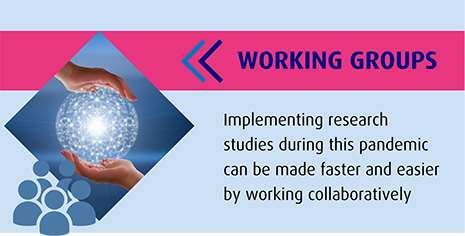 |
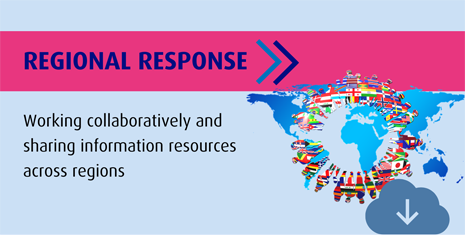 |
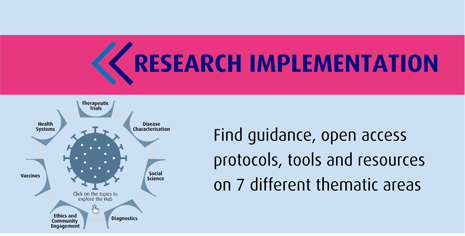 |
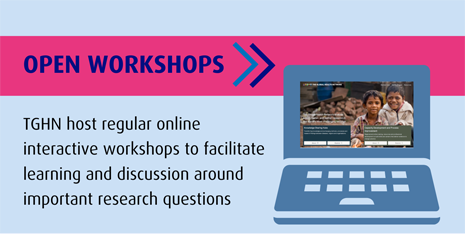 |
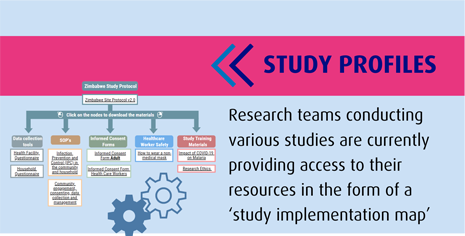 |
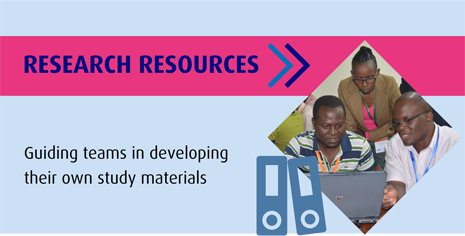 |
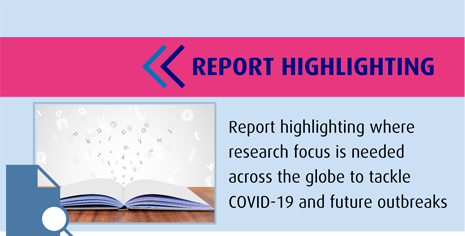 |
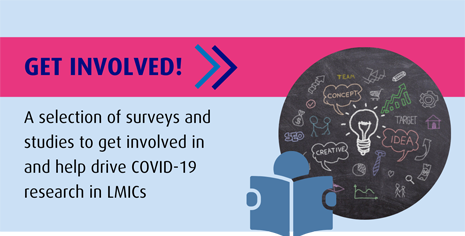 |
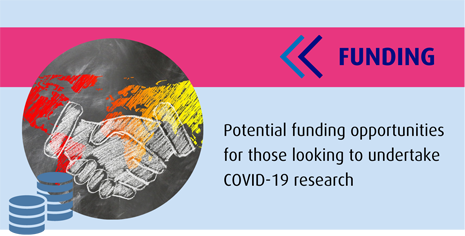 |